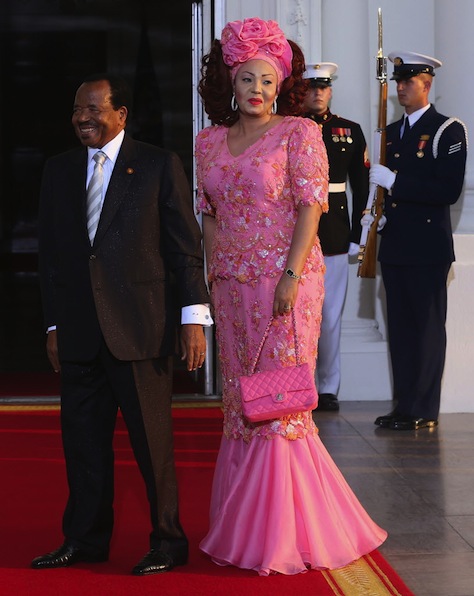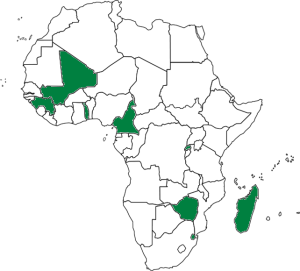As soon as she stepped off the airplane, she became the instant, unexpected hit of the White House’s summit of African leaders in Washington, D.C.![]()
No, it’s not Ellen Johnson Sirleaf, the president of Liberia, who cancelled plans to visit Washington in the wake of the devastating Ebola outbreak in west Africa.
Africa’s only other female head of state, Catherine Samba-Panza, who is struggling as interim president of the Central African Republic to pacify what’s now been a year of civil war, wasn’t even invited to the summit. (Under the African Union’s rules, no CAR leader was eligible to attend until the country holds new, democratic elections.)
Instead, it’s Chantal Biya, whose flamboyant hairstyle has grabbed headlines from New York to Los Angeles. The Washington Post‘s hard-hitting coverage noted when Chantal Biya ‘and her hair’ touched down in Washington, DC. It’s disappointing that the US media, given so many governance crises across sub-Saharan Africa, has emphasized style over substance during this week’s summit.
Chantal Biya’s husband, Paul Biya, has served as president of Cameroon, a west-central African country that shares a long border with Nigeria, since 1982 — the second year of the Reagan administration in the United States. His 32-year record isn’t exactly admirable. It’s a country that has a GDP per capita of less than $1,300, according to the International Monetary Fund, and it would be even less if not for oil production. For a first lady who confesses a weakness for Dior and Chanel, her husband presides over a country of nearly 22 million people where nearly 40% live at or below the poverty level. Continue reading The country behind the hair: contemporary Cameroon


